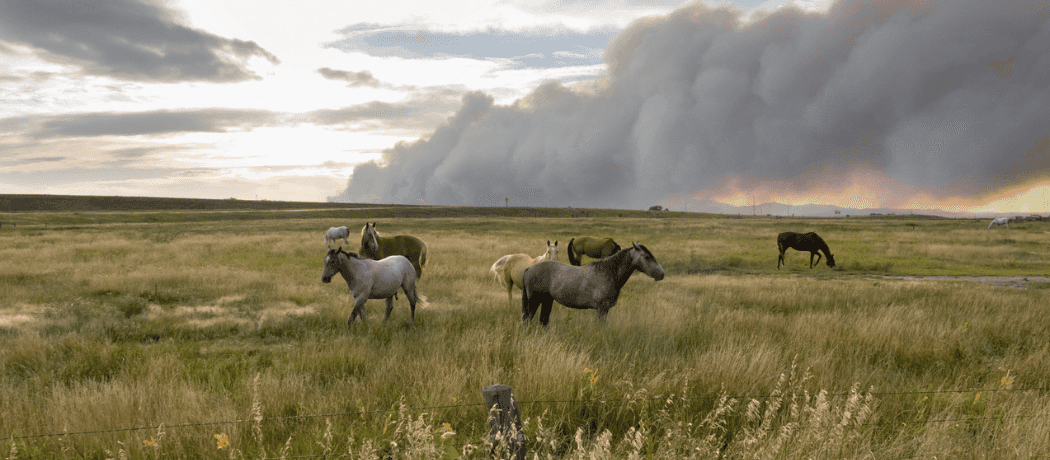
OVC Researcher Dr. Janet Beeler-Marfisi Examines Increased Risk of Equine Asthma From Wildfire Smoke
July 24, 2023
The air pollution caused by smoke from forest fires across Canada is cause for concern for creatures large and small. That includes horses, who are at increased risk of developing equine asthma from smoke exposure, says Dr. Janet Beeler-Marfisi of the Ontario Veterinary College.

Beeler-Marfisi is a veterinarian and professor in the Department of Pathobiology who studies asthma in horses and has identified a relationship between air pollution exposure and the chronic lung condition.
The smoke from wildfires – now actively burning in nine provinces and territories – is creating poor air quality for humans and animals, which aggravates their airways, says Beeler-Marfisi.
“Smoke and smog cause the lung inflammation associated with mild equine asthma,” she explains.
Mild equine asthma (mEA) and severe equine asthma (sEA) have had many different names, ranging from “hay cough” and “heaves” to official classifications of emphysema, chronic obstructive pulmonary disease and recurrent airway obstruction.
“The evolution of this terminology reflects how the scientific and medical understanding of this debilitating disease has changed over the years,” Beeler-Marfisi says.
Both mild and severe equine asthma are triggered by the same air pollutants, ranging from gas and diesel-powered equipment, smog (even from a small city) and more recently wildfire smoke, a serious contributor to air pollution.
Beeler-Marfisi estimates nearly 15 per cent of horses in Canada suffer from equine asthma. With this wildfire season producing such poor air quality, she says that number is rising.
“There is no question it is higher,” she says.
The signs of mEA can be subtle and require an astute owner, trainer, groom or rider to recognize them. As with humans who suffer in poor air quality, horses will exhibit symptoms such as watering eyes or noses, laboured breathing, fatigue, reduced appetite and thirst or they may develop a cough.
That cough is a warning sign, Beeler-Marfisi says, and early detection of equine asthma is important because there are a variety of medical therapies available.
“If you can feel that air quality making your throat sore, your horse is likely experiencing the same thing,” she says. Ceasing physical activity, moving horses to a dust-free indoor location where fresh, clean water is always available and contacting a veterinarian for a full examination that includes assessing the horse’s lungs are recommended.
“It’s imperative to monitor the Air Quality Index and the AQI forecast in your region,” Beeler-Marfisi says, adding that owners should adjust exercise time or outdoor activities for the animals accordingly.
This story was originally posted on the University of Guelph news site.
.png)